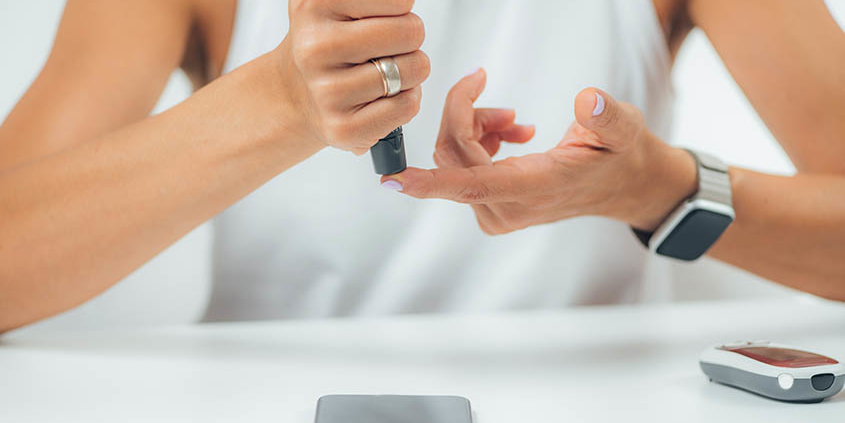Can’t fit into the jeans you wore at 21? You might be at risk of diabetes
Diabetes experts have warned that if you can no longer fit into the trousers you wore at 21, you may be at risk of developing diabetes – even if you’re not overweight.
UK researchers presented these concerning findings at the online annual meeting of the European Association for the Study of Diabetes. Professor Roy Taylor, of Newcastle University, and his team found that too much fat around the liver and pancreas caused the disease even in those who were at a healthy weight according to their BMI.
Professor Taylor said: “As a rule of thumb, your waist size should be the same now as when you were 21. If you can’t get into the same size trousers now, you are carrying too much fat and therefore at risk of developing type 2 diabetes, even if you aren’t overweight.”
The difference between type 1 and type 2 diabetes
The main difference between the two conditions is that type 1 diabetes is a genetic disorder where you do not produce enough insulin and is normally discovered earlier on in life. Type 2 diabetes means you don’t respond to insulin well and is largely diet and lifestyle related and develops over time.
Type 1 diabetics must take insulin every day to keep their blood sugar levels in a healthy range, but the good news is that the study confirmed that type 2 diabetes can be reversed by losing weight, even in those who weren’t obese.
Eight out of the study’s 12 participants had a normal BMI and type 2 diabetes and were able to reverse the condition by losing 10 to 15% of their normal body weight following a diet programme.
Dr Tickle believes strongly in the power of lifestyle medicine and is a member of the British Society of Lifestyle Medicine (BSLM): “I truly believe diabetes can be pushed into remission and this set of research pretty much nails that.”
When should you have a diabetes assessment?
More people than ever are at risk of diabetes, and it is estimated that by 2030 5.5 million people will have diabetes in the UK, with approximately 90% living with type 2 diabetes.
Pandemic weight gain is a very real issue for many of us. Dr Tickle explains: “If you have gained more than 10% of your body weight or over 10kg during last 12 to 18 months, a diabetes assessment is recommended – many of these persons will have drifted into diabetes.”
“If you have a family history of diabetes and/or diabetes in pregnancy, you should also be assessed. I recommend five years before the age of diabetes onset in any close relatives and five years after pregnancy, if you developed gestational diabetes, even if the condition resolved itself after you gave birth.
“If you already have high BP, high cholesterol, high uric acid levels, then annual check on fasted insulin is very useful to see if you are heading off towards diabetes.”
As well as diabetes assessments, Dr Tickle offers Libre sensors to patients, a flash glucose monitoring system that measures your sugar levels throughout the day. The system is composted a small sensor your stick to your arm and a reader to scan the sensor. You can also use a smartphone app to scan the sensor.
The sensors usually last for 14 days and can be invaluable information about your condition and whether you need to make any lifestyle changes or look at treatment options. “We offer Libre sensors to all the patients so they can start to see what their blood sugars are doing. This is such a helpful step and makes a huge difference to motivation.”
For more advice on preventing or treating diabetes, call us on 07788 797 824 to arrange a consultation with Dr Tickle.



